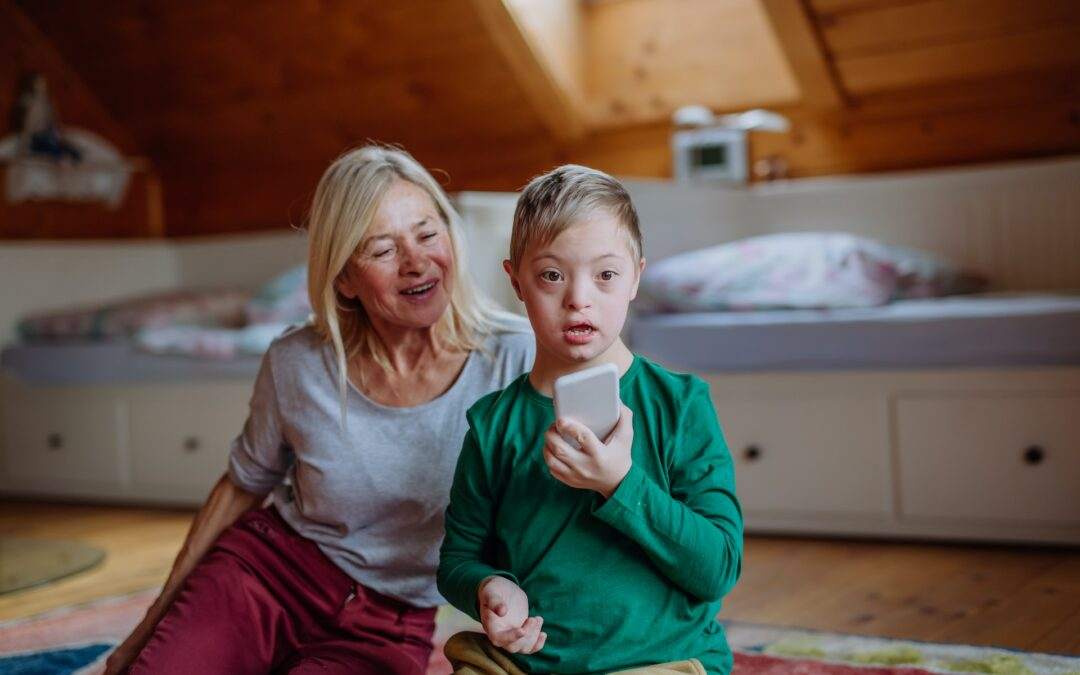Social skills encompass a wide array of behaviors and abilities that are necessary for building and maintaining successful relationships, as well as effectively navigating various social situations. For children with autism, developing these social skills can prove to be a complex and sometimes challenging process. Applied Behavior Analysis (ABA) therapy, an evidence-based approach to autism treatment, has been proven effective in addressing social skills development in children with autism, helping them build meaningful connections and fully participate in their communities.
In this article, we will take a closer look at the importance of social skills development in children with autism, the role of ABA therapy in strengthening these skills, and the specific strategies utilized by ABA therapists to promote optimal social functioning. We will also outline Strive ABA Consultants’ unique approach to social skills training and highlight the benefits of this comprehensive and personalized intervention plan.
The Importance of Social Skills Development in Children with Autism
Developing robust social skills is crucial for children with autism, as these abilities greatly impact their capacity to form meaningful relationships, navigate social situations, and fully participate in their communities. Strong social skills contribute to improved self-esteem, emotional well-being, and overall quality of life for children with autism. Furthermore, fostering social competence can also lead to better academic performance, increased independence, and greater opportunities for success in adulthood.
The Role of ABA Therapy in Social Skills Development
Applied Behavior Analysis (ABA) therapy is a research-based approach to autism treatment that has demonstrated effectiveness in enhancing social skills in children with autism. ABA therapy applies the principles of learning and behavior modification to teach new skills and reduce challenging behaviors, providing a systematic framework for social skills training. ABA therapists work closely with children and their families to identify specific social skill deficits, develop personalized intervention plans, and continuously monitor progress to ensure optimal results.
Strategies Utilized by ABA Therapists for Social Skills Training
A wide range of evidence-based strategies can be employed within the ABA therapy framework to foster social skills development in children with autism. These techniques include:
- Discrete Trial Teaching (DTT): DTT involves breaking down social skills into smaller, more manageable components. Therapists teach these individual skills through structured and repeated trials, providing prompts and reinforcement to promote learning and mastery.
- Naturalistic Teaching Strategies: Naturalistic teaching focuses on teaching social skills within the context of everyday activities and routines, capitalizing on naturally occurring opportunities for learning. This approach often involves incidental teaching, the use of visual cues, and role-playing to foster social skill acquisition.
- Social Skills Groups: ABA therapists may organize social skills groups to provide children with autism a supportive environment to practice and generalize their newly acquired skills. These groups often involve peer models and offer highly structured activities to facilitate social interaction and learning.
- Video Modeling: Video modeling is a research-based technique that involves showing children with autism videos of appropriate social interactions, allowing them to observe and learn new skills through imitation.
Strive ABA Consultants’ Unique Approach to Social Skills Training
At Strive ABA Consultants, we are committed to providing effective social skills training tailored to the unique needs of each child with autism. Our comprehensive approach to social skills development includes the following elements:
- Comprehensive Social Skills Assessment: Our experienced ABA therapists begin by conducting a thorough assessment of each child’s social skills to identify strengths, challenges, and areas for growth.
- Personalized Intervention Planning: Based on the results of the assessment, our therapists develop an individualized social skills intervention plan that outlines targeted skills and the evidence-based strategies best suited for the child’s needs.
- Collaborative Treatment Process: We recognize the importance of involving the whole family in the social skills training process. Therefore, we work closely with parents, siblings, and other key individuals to implement strategies consistently across all settings, ensuring maximum success for the child.
- Data-driven Progress Monitoring: Our ABA therapists routinely collect data to monitor each child’s progress in the development of social skills, allowing for ongoing adjustments to the intervention plan as needed. This data-driven approach ensures that our therapy remains effective, personalized, and tailored to the child’s evolving needs.
Benefits of ABA Therapy for Social Skills Development
Incorporating social skills training in ABA therapy can offer many advantages for children with autism, including:
- Improved Social Competence: Children with autism who receive targeted social skills training through ABA therapy demonstrate enhanced social competence, which enables them to build and maintain meaningful relationships.
- Increased Participation in Social Activities: As children with autism develop stronger social skills, they are more likely to engage in and enjoy social activities, further promoting their overall quality of life.
- Enhanced Self-esteem and Emotional Well-being: Improved social skills contribute to increased self-confidence and emotional well-being, allowing children with autism to better navigate their world.
- Greater Long-term Success: By fostering the development of social skills early in life, ABA therapy can set children with autism on a path towards greater independence and success in adulthood, extending its benefits well into the future.
Conclusion
Social skills represent a critical aspect of overall well-being of children with autism, making their development and enhancement through ABA therapy essential. Strive ABA Consultants is dedicated to providing personalized, effective social skills training within our comprehensive ABA therapy services to ensure each child can build meaningful connections and confidently navigate social situations.
If you’re seeking a transformative approach to social skills training that empowers your child with autism to break through barriers and unleash their fullest potential, contact Strive ABA Consultants today and embark on this life-changing journey together.


